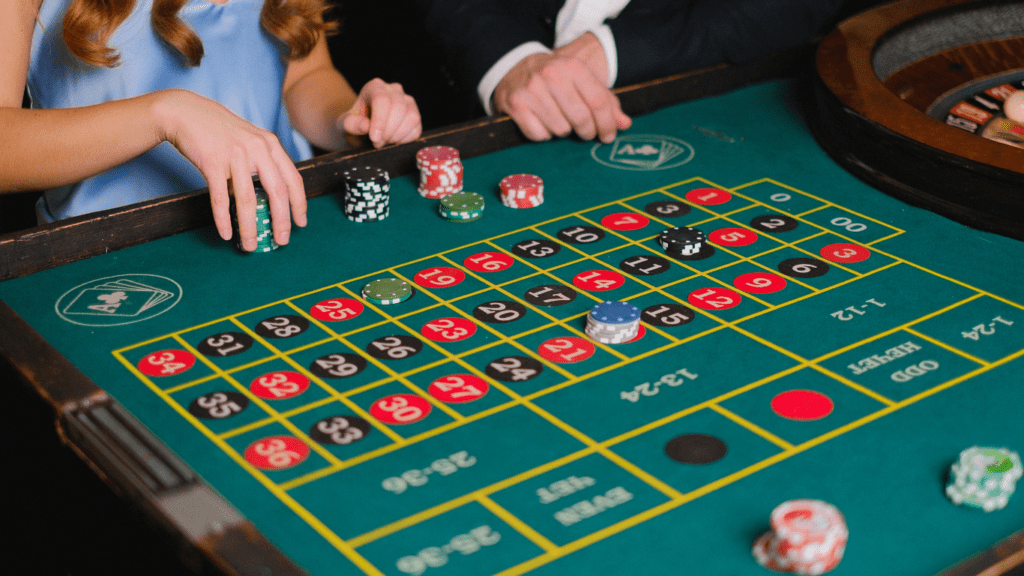The Origins Of Gambling Superstitions
Gambling superstitions have a long history rooted in a mix of cultures and beliefs, influencing how players approach games of chance. These traditions often reflect broader societal customs.
Historical Context
Superstitions in gambling date back to ancient civilizations. In Ancient China, the belief that spirits influenced luck became widespread. In Rome, dice games came with rituals to appease divine forces before play. Medieval Europe’s gambling houses were rife with omens and charms. More recently, the 19th-century poker boom in America saw players embrace lucky talismans to sway fortune.
Cultural Variations
Different cultures bring unique superstitions to gambling. In China, the number 8 symbolizes prosperity, making it a favorable choice in casinos. Western gamblers often avoid the number 13, viewing it as unlucky, with Friday the 13th being particularly ominous. There is a belief in Italy that wearing red brings luck at the gaming table. Meanwhile, Japanese gamblers consider the act of sweeping to clear away good luck.
Common Gambling Superstitions
Gambling superstitions shape the behavior of many enthusiasts around the globe. Some players rely heavily on their beliefs, convinced these customs bring them closer to success.
Lucky Charms And Rituals

Many gamblers believe in carrying lucky charms or following specific rituals. Common charms include:
- rabbit’s feet
- four-leaf clovers
- horseshoes
Rituals can be as simple as wearing red clothing or as complex as following a detailed pre-game routine. These actions are thought to harness positive energy or attract good fortune.
For instance, poker players might stack their chips in a familiar pattern to maintain a winning streak, while slot machine enthusiasts might touch the machine in a particular way before playing.
Unlucky Numbers And Patterns
Fear of certain numbers and patterns is prevalent among gamblers. The number 13 is commonly avoided in Western cultures as it’s associated with bad luck. On the flip side, the number 4 is considered unlucky in East Asian countries, including China and Japan, due to its phonetic similarity to the word for “death.” Some players avoid seating arrangements, betting amounts, or ticket numbers linked to these figures. Patterns, such as losing streaks, also influence betting decisions, with players either changing their strategy or leaving the game entirely to break the perceived jinx.
Psychological Aspects Of Superstitions
Superstitions and cognitive biases influence gambling behaviors. Players often attribute their outcomes to luck.
Cognitive Biases
Players’ cognitive biases, such as confirmation bias or the gambler’s fallacy, affect their decision-making processes. Confirmation bias leads individuals to seek information that supports their beliefs while ignoring contradictory evidence. In gambling, a player may only remember winning spins on a slot machine when using a lucky charm, reinforcing the superstition.
The gambler’s fallacy involves the belief that past events influence future ones, like assuming a roulette wheel landing on red multiple times makes black ‘due.’ These biases create misconceptions about the nature of random events.
The Role Of Luck In Gambling
- In gambling, luck plays a central role.
- Many players perceive luck as a powerful force dictating wins and losses.
- This perception often underpins superstitious behavior, with players believing that certain activities or tokens can invoke good luck.
- Studies have shown that attributing outcomes to luck can help gamblers rationalize losses and justify continued play, providing a sense of control in an inherently unpredictable environment.
- Thus, the belief in luck reinforces gambling superstitions and affects choices.
The Impact Of Superstitions On Gambling Behavior
Gambling superstitions deeply affect how individuals approach betting and decision-making. Many rely on these beliefs for guidance, impacting both choices and preferences.
Decision-Making Risks
Superstitions in gambling can lead to significant decision-making risks. Players often make choices based on unfounded beliefs, like avoiding certain numbers or choosing “lucky” seats at a casino. This reliance on superstition often supersedes statistical analysis and sound strategy.
When gamblers attribute success to rituals rather than skill, their risk of substantial loss increases. For example, a player may continue betting against odds due to a belief in a winning streak. Such decisions ignore logical patterns, increasing the potential for negative outcomes.
Influence On Game Preferences
Superstitions often shape players’ game preferences and even their selection of specific games. Many might choose table games like roulette or craps for their perceived luck-based nature, favoring them over skill-based games like poker.
Cultural beliefs can influence these choices; for instance, a player might select a slot machine displaying the number 8 due to its association with prosperity in Chinese culture.
These preferences ignore the inherent randomness of games, focusing instead on subjective meaning tied to symbols or numbers. As a result, superstitions can limit the diversity of games a player engages with, reinforcing their belief systems.
Scientific Perspectives On Gambling Superstitions
Gambling superstitions have fascinating psychological and cultural elements. Scientific perspectives provide insights into their origins and effects on behavior.
Studies And Findings
Research on gambling superstitions reveals how cognitive biases affect decision-making. A study by the University of Cambridge found that players often demonstrate the gambler’s fallacy, believing past outcomes influence future events. Neuroscientists at the University of British Columbia discovered that brain regions associated with reward processing become active during superstitious rituals, suggesting these rituals create a sense of control over chance events. The Journal of Behavioral Decision Making published a study indicating that superstitions may enhance confidence, leading to riskier gambling behaviors.
Expert Opinions
Experts in psychology and gambling behavior provide crucial insights into superstitions. Dr. Richard Wiseman, a psychologist specializing in luck, argues that superstitions function as psychological safety nets, offering players a false sense of security. Gambling expert Dr. Mark Griffiths emphasizes that while superstitions offer short-term comfort, they can hinder rational decision-making and encourage maladaptive behaviors. Experts at the International Gambling Institute highlight cultural influences, noting that beliefs like numerology significantly shape regional gambling patterns.



 _____
Doyle Ginn – Lead Analyst & Odds Strategist
Doyle Ginn is the numbers guru of Play Gambler Cash. With years of experience decoding betting odds and uncovering hidden patterns, Doyle provides players with actionable strategies to improve their winning chances. His sharp analytical skills make him an invaluable resource for gamblers looking to beat the odds.
_____
Doyle Ginn – Lead Analyst & Odds Strategist
Doyle Ginn is the numbers guru of Play Gambler Cash. With years of experience decoding betting odds and uncovering hidden patterns, Doyle provides players with actionable strategies to improve their winning chances. His sharp analytical skills make him an invaluable resource for gamblers looking to beat the odds.